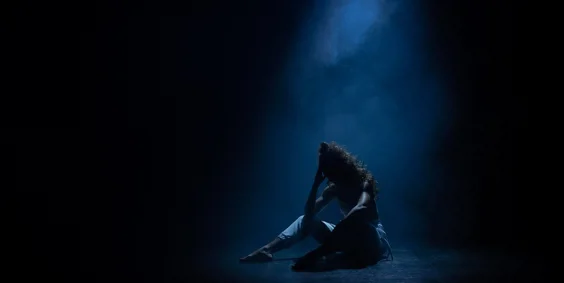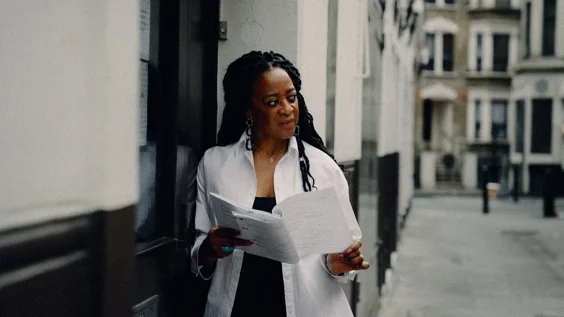Advice for visually impaired actors
When casting:
If you're looking for visually impaired (VI) actors (or amenable to casting VI actors incidentally), please be aware that blindness is a huge spectrum. The word 'blind' is a misnomer: most of visually impaired actors have some vision to varying degrees. For many people, it's a hidden or invisible impairment.
Be aware that everyone has their own preferred terms — VIP (visually impaired person), blind, partially sighted, a person with sight loss, etc. Visually impaired is widely recognised and is the most general term to use, but ask what the individual prefers.
Practical tips for auditioning:
- Ask which method the actor would like use to access scripts (iPads that enlarge text, screen readers, line-feeding everyone has their own preference).
- Provide text as far in advance as possible as it can take visually impaired actors longer to read through and get familiar with it.
- Sight reading is hard but not impossible.
- Some VI actors may have a recording of the text or may wish someone in the room to line feed.
- It's best never to send PDFs, they can't be altered and screen readers often can't access them. Word documents are best, Ariel tends to be the clearest font and size 16 should be the minimum (many people use larger font size). It's best to ask upon initial contact what methods and formats the individual prefers to use.
- In workshop auditions offer an access worker or be aware to use specific language when directing an exercise — e.g., be careful not to rely on physically demonstrative terms like 'over there/here' or 'we'll move around the space like this'. Use language that describes what you expect the group to do.
- Navigating to and from audition venues can be very hard. Graeae offer to send someone (hopefully with some VI awareness) to collect you from the station or other convenient place if you don't know the area.
- Entering buildings and finding where you need to go is also difficult — some forewarning about the entry system or appearance of the building is appreciated — e.g. 'there will be a buzzer to push on the left hand side of a large blue front door', 'the building/entrance is halfway down the street, it's a white-framed glass panel front door that you pull to open, reception is directly in front of you upon entry'.
At work:
Most of the points above for audition apply at work.
- Chat to the actor about access workers/ personal assistants and all access requirements before they start. If they require an access worker talk to them about Access To Work and how you can help with their application if the company can't financially provide that support (if the job is longer than a week or so, it's not available for very short term jobs).
- It's also important to give a thorough orientation around the space — the rehearsal rooms, the corridors, green room or kitchen, loos, offices, dressing rooms, stage, TV/film studio and set.
- It can be helpful to go around the room and have everyone say their name at the start of a session, so we know who is present and where they are (unless there are hundreds of people around!).
- On set the actor would likely benefit from being introduced to the filming process and where to expect the crew to be placed when the cameras are turning over and between takes.
- Give clear verbal instructions at all times.
- Be aware of cables and other trip hazards as there are loads of them on set (but please don't make a big thing of it!).
Be flexible and if in doubt, ask.
Be encouraged to cast more VI (and disabled actors in general) incidentally. The character may not be written as visually impaired but why not be, without it being all about that? For a lot of people, it's a relatively hidden impairment that never needs to be referenced.
As it stands, the arts do not reflect society as it genuinely is. Please do your bit to make this change and create a fairer, more diverse, representative and more interesting industry for all of us.

